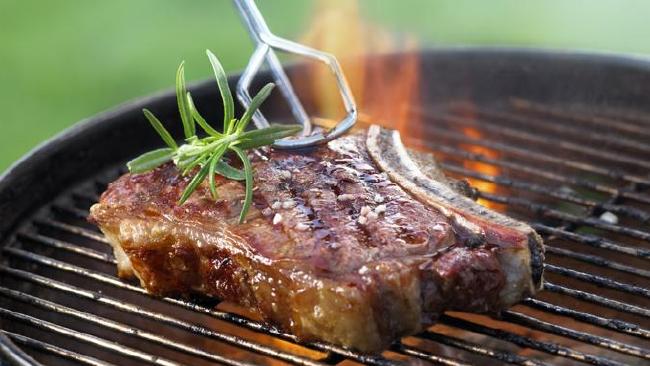
THE great Australian barbecue could be giving you bowel cancer and it’s not just the red meat and sausages — it’s also the way they are cooked that’s killing you.
The World Health Organisation has warned every 50-grams of processed meat like sausages and bacon you eat in a day increases the risk of colorectal cancer by 18 percent.
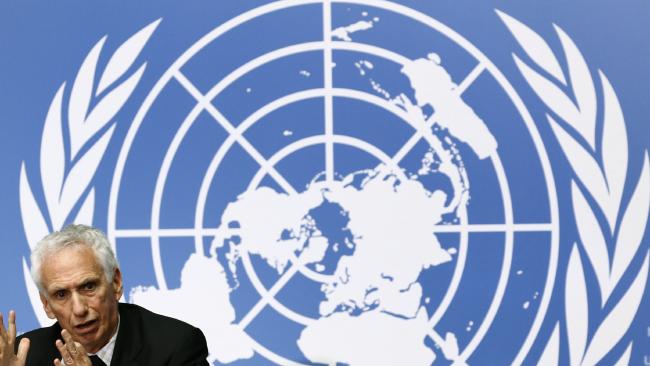
But Bowel Cancer Australia says charring these meats on a barbecue makes them even more deadly.
The caramelisation that occurs when meat is cooked on a barbecue changes the iron content of red meat releasing heterocyclic amines that are toxic to the bowel, says Bowel Cancer Australia’s nutritionist Teresa Mitchell-Patterson.
“It’s scary when you know how much barbecuing we do,” she says.
”There is some evidence that charred meat may present a special risk says University NSW Professor Bernard Stewart who worked on the WHO study.
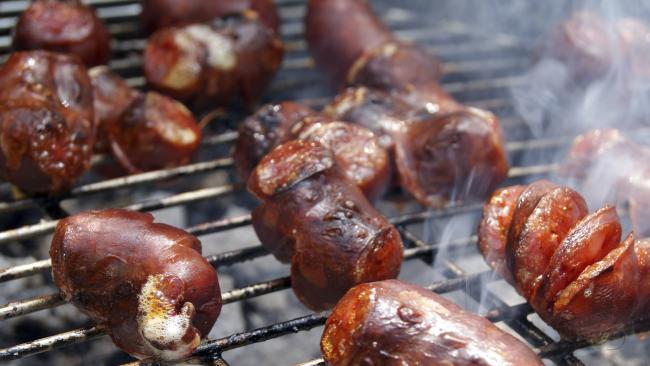
And eating any meat, even white meat, that has been smoked can increase your risk of cancer because of the nitrates and other chemicals says Nutritionist Rosemary Stanton who helped devise the National Health and Medical Research Councils dietary guidelines.
The news could spell the death knell for the popular but controversial Paleo diet which focuses on eating meats and vegetables at the expense of grains and legumes.
“Any situation where high intake of red meat is endorsed is subject to question,” says Professor Stewart who worked on the WHO study.
Australians are the biggest meat eaters in the world according to the OECD.
We consumed 93 kilograms of meat per person in 2013 compared to 91.1 kilograms per person in America.
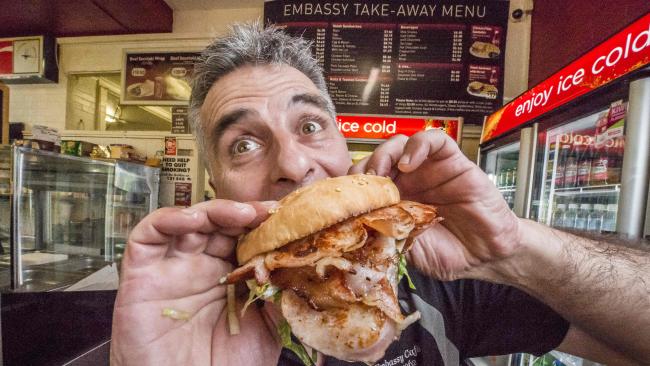
And we have the eighth highest rate bowel cancer in the world after Korea, Eastern European countries and Scandanavia.
The Australian Bureau of Statistics found in 2012 we consumed 152 grams of beef, sheep and pork meat each week, 151 grams of frankfurts, sausages and saveloys, 42 grams of processed meat and 149.5 grams of sausage, bacon and ham.
The Australian Bureau Agriculture Resources Economics and Science has found over the last 50 years, Australian meat consumption pattern has changed significantly we have increased their consumption of chicken and pork at the expense of beef, mutton and lamb.
The IARC has classified processed meat as “carcinogenic to humans” and placed it on the list along with tobacco and asbestos as having “sufficient evidence” of cancer links.
However, Professor Stewart says the 1.18 per cent cancer risk of red meat compares to the fifty fold increased risk of cancer from lifetime smoking and “it only gets important once you eat more tha 200 grams of red meat a day”.
The new warning come after the IARC examined some 800 studies during a meeting of 22 health experts earlier this month.
Australian dietary guidelines say we should not consume more than 450 grams of red meat a week.
Rosemary Stanton says most women eat within these guidelines but men eat an average 700 grams of red meat a week.
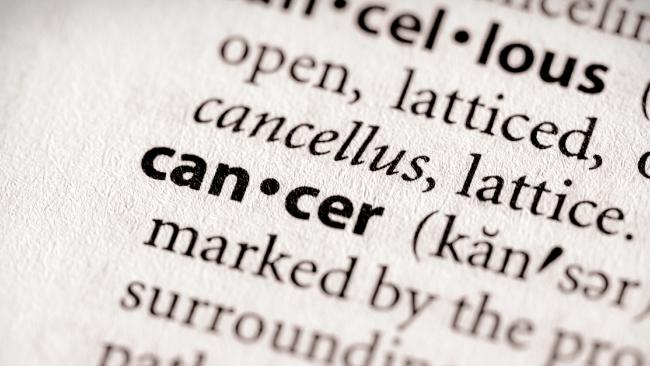
The problem with red meat is that it sets up different bacteria in the bowel, she says.
The take home message from the World Health Organisation is not that you should give up meat eating, says Ms Stanton.
“You don’t need to give up meat, that’s not what the study says,” she says.
“Its about reducing the quantity of meat that we eat,” she said.
Professor Stewart who worked on the WHO study says he still eats red meat and enjoys it but no more than 2-3 times a week.
“The risk is so small on a moderate intake I’m not worried,” he says.
“The recommendation is specifically aimed at discouraging high intake rather than banning it or putting warning lables on hot dogs,” he said.
Bowel Cancer Australia says if you can’t give up your barbecue steak you can reduce its carcinogenic properties by marinating it in olive oil and garlic and cook on a low flame because this will reduce the harmful chemicals being formed when it cooked.